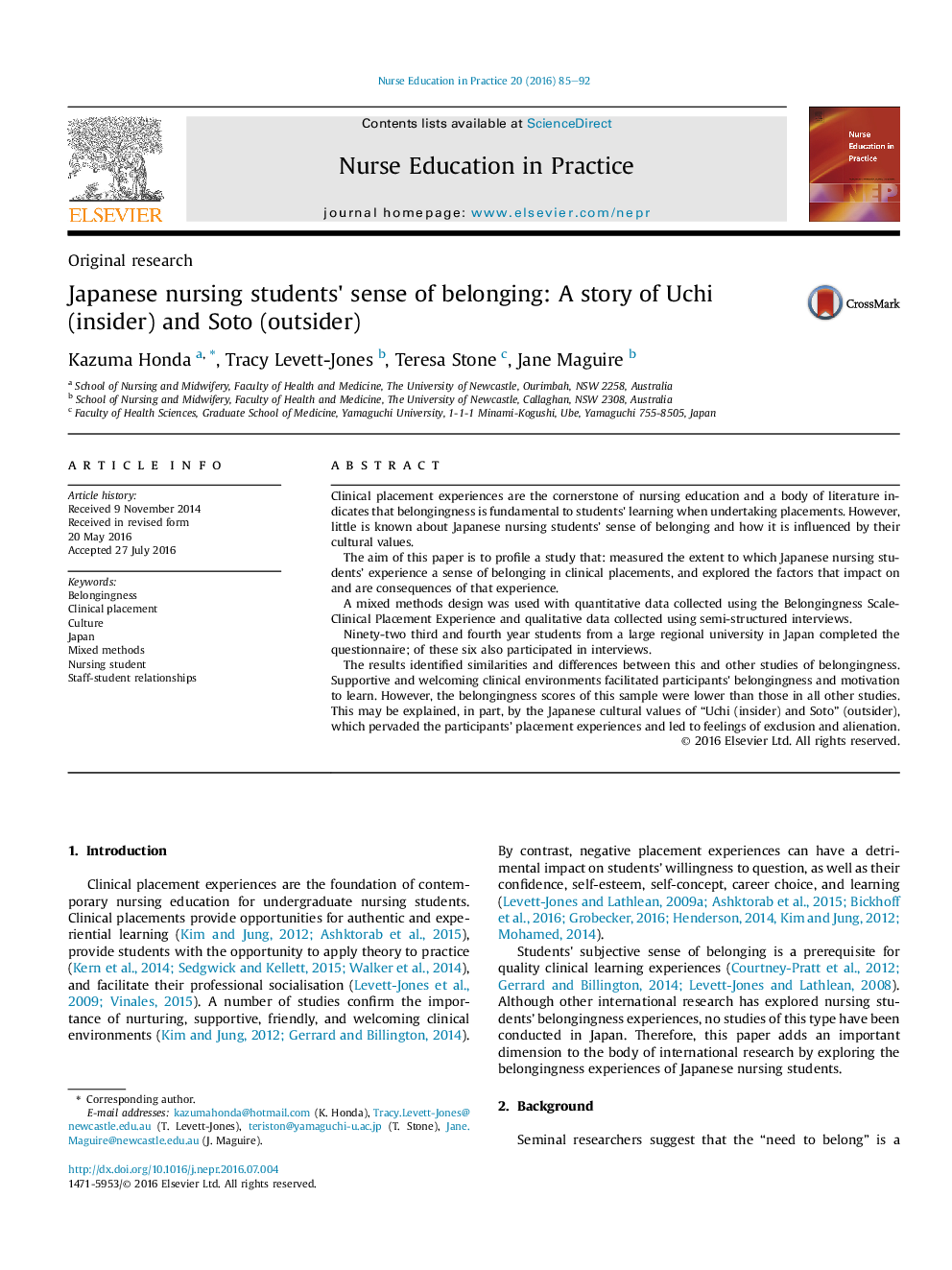| کد مقاله | کد نشریه | سال انتشار | مقاله انگلیسی | نسخه تمام متن |
|---|---|---|---|---|
| 366633 | 621455 | 2016 | 8 صفحه PDF | دانلود رایگان |
• The Japanese cultural concept of Uchi and Soto has an important influence on Japanese nursing students’ sense of belonging.
• The need to belong influences Japanese nursing students’ professional and personal behaviours whilst on clinical placements.
• Belongingness is a universal and pervasive human need and essential to successful clinical placement experiences.
Clinical placement experiences are the cornerstone of nursing education and a body of literature indicates that belongingness is fundamental to students' learning when undertaking placements. However, little is known about Japanese nursing students’ sense of belonging and how it is influenced by their cultural values.The aim of this paper is to profile a study that: measured the extent to which Japanese nursing students’ experience a sense of belonging in clinical placements, and explored the factors that impact on and are consequences of that experience.A mixed methods design was used with quantitative data collected using the Belongingness Scale-Clinical Placement Experience and qualitative data collected using semi-structured interviews.Ninety-two third and fourth year students from a large regional university in Japan completed the questionnaire; of these six also participated in interviews.The results identified similarities and differences between this and other studies of belongingness. Supportive and welcoming clinical environments facilitated participants' belongingness and motivation to learn. However, the belongingness scores of this sample were lower than those in all other studies. This may be explained, in part, by the Japanese cultural values of “Uchi (insider) and Soto” (outsider), which pervaded the participants’ placement experiences and led to feelings of exclusion and alienation.
Journal: Nurse Education in Practice - Volume 20, September 2016, Pages 85–92
